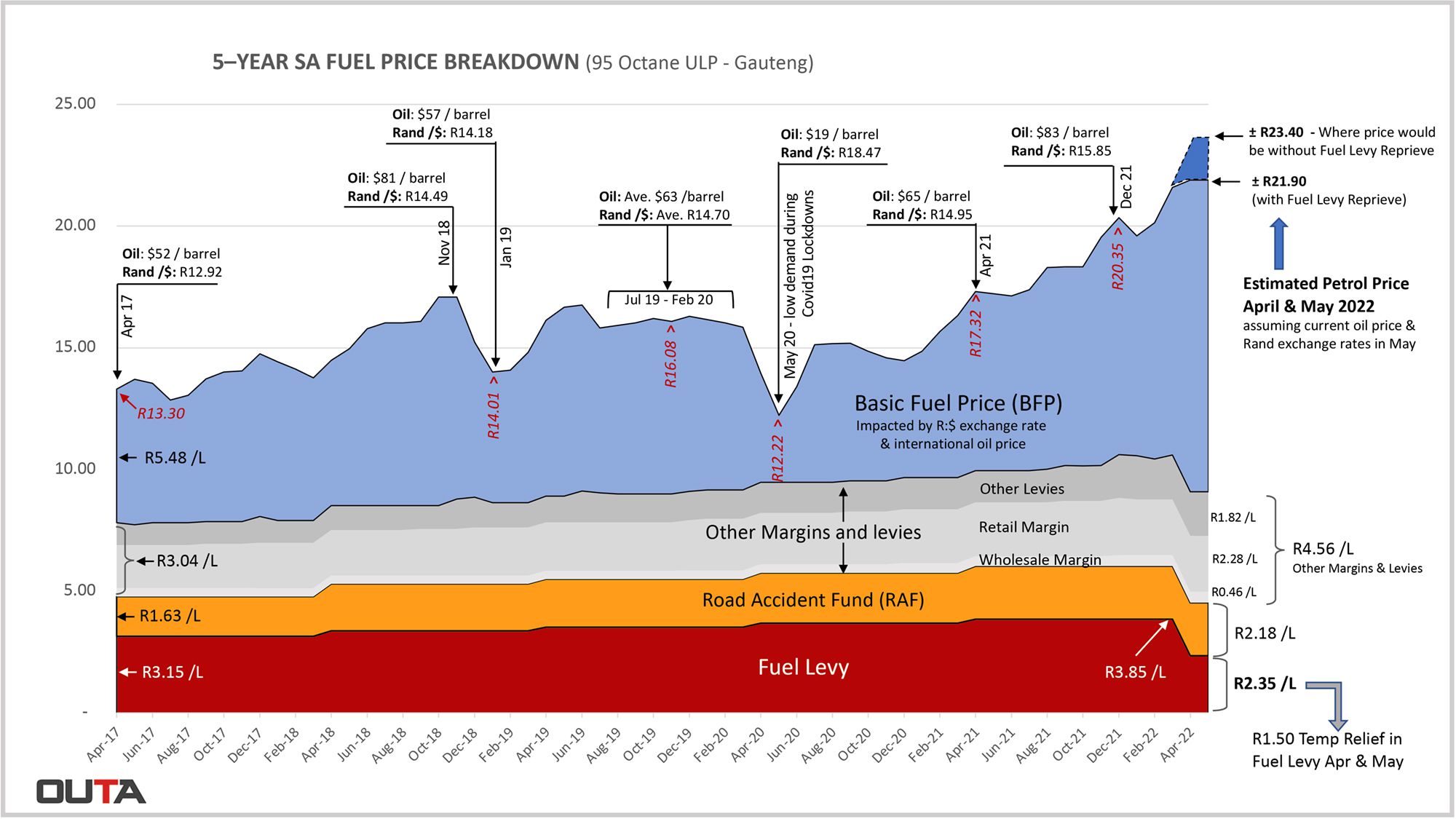Fuel levy reduction is a welcome relief
The decision by Finance Minister Enoch Godongwana to reduce the fuel levy by R1.50 for the next two months is a positive reaction by government to largely offset another steep increase in the price of petrol and diesel on 6 April.
The impact of rising international oil prices as a result of the war in Ukraine would have taken the price of a litre of 95 octane petrol in Gauteng to around the R23.40 mark from the first Wednesday of April. However, government’s decision to introduce a temporary reduction in the fuel levy means the increase will only be around 40c to 50c per litre.
This comes on the back of government’s recent decision not to increase the General Fuel Levy and Road Accident Fund levy for the coming year, which the Minister announced in his February 2022 Budget speech. Had he not heeded the loud call from civil society to relax the pressure of annual increases on these levies, there would have been an additional R0.35 to R0.40 added to the fuel price in April. All in all, government’s recent decisions have effectively shaved off almost R2.00 per litre of petrol and diesel for the consumer for the coming months, which will go a long way to ease the pain on commuters and motorists, along with the general cost of transportation of goods to market.
“Naturally, we would have liked to have seen a greater temporary reduction of the fuel levy, closer to R3.00 per litre, but that may have been a bridge too far on the affordability front for the state,” says Wayne Duvenage, OUTA CEO.
What we welcome even more is Minister Godongwana’s announcement that the Demand Side Management Levy (DSML) component will be dropped (another R0.10c per litre), and other elements pertaining to the wholesale and retail margins will be given a thorough review, with a view to remove unnecessary charges that have crept into these components of the petrol price over the years.
“If anything good has come from the recent high petrol prices, it is government’s realisation that it needed to halt its incessant annual levy increases and to take a serious deep dive into reviewing the various components that make up the price of petrol in South Africa,” says Duvenage.
“By doing so, when and if international events placing pressure on the oil price subside and oil returns to around the $60 per barrel mark, and if our economic policies are able to get the rand to strengthen somewhat to around R14.00 to the US dollar mark, we will see the price of petrol drop to around R16 per litre again.”
This development will naturally have a significantly positive impact on our economy and consumer confidence.
Soundclip
A soundclip with comment by OUTA's Wayne Duvenage is here.
